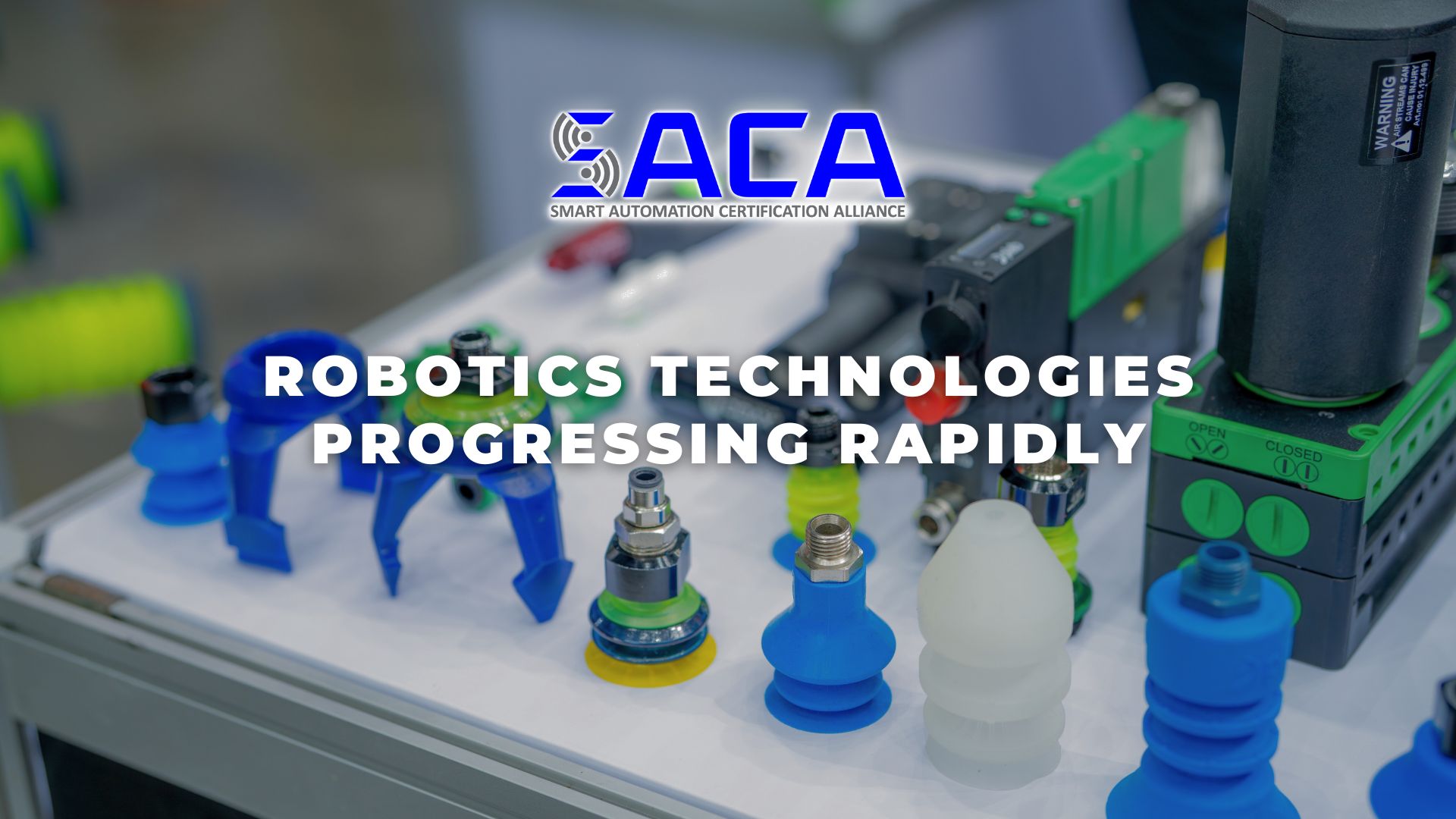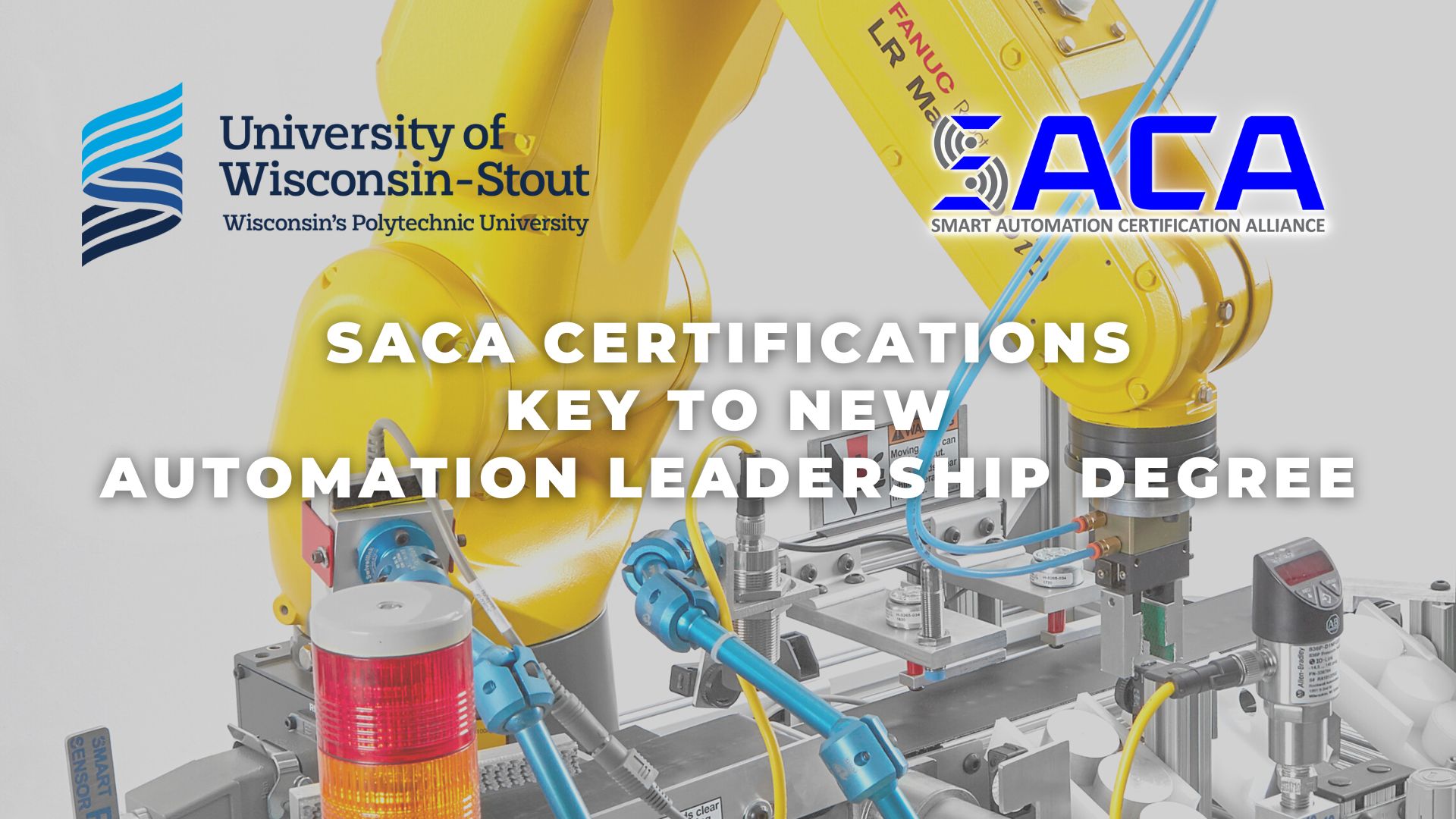
Are you old enough to remember when robots were futuristic, rather than an ever-expanding part of our everyday lives? While most of us still don’t have Jetsons-level robots to take care of all our housework, many of us do own robotic vacuums that at least clean the floors on a regular basis.
Many of us also work alongside robots in the workplace. This is especially true if you’re in any kind of modern manufacturing. From welding robots to automated guided vehicles, robots have become deeply ingrained in today’s manufacturing facilities that are embracing all sorts of new advanced automation technologies.
In a recent Forbes article, author Steve Banker recounts his experiences attending MODEX trade shows in 2016 vs. 2024. In 2016, he only remembered three robotics exhibitors at the show. This year, however, “33 exhibitors had the word ‘robot’ or ‘robotics’ in their title. And almost all the large material handling vendors and systems integrators that don’t have the term ‘robotics’ in their name, were also displaying bots.”
That’s why his visit to MODEX 2024 led Banker to declare this “the year of the robot.” What caught Banker’s eye this year were the “robots that have ‘hands’ for picking cases or eaches.” According to Banker, “[e]ach picking involves picking individual units and putting those items in a container. Until recently, each and case picking were just too difficult for bots.”
The robotics on display at MODEX 2024 revealed solutions that have made each and case picking possible by combining five different technologies:
- Robotic arms: “This is a mature technology that has been used for years in automotive manufacturing.”
- Robotic “hands” powered by suction cups: “The solutions have compressors that provide the right amount of suction for picking different sizes and weights. There can be different arrays of suction cups.”
- Vision systems: “Vision systems combined with AI allow the system to know what suction cups to initiate and how much compression to use.”
- Artificial intelligence: “Machine learning also comes into play. For example, if the system has trouble picking a particular item, an alert can tell a planner not to allow that stock keeping unit to enter the robotic picking queue.”
- Software: “Finally, complex software can be necessary. If you are floor loading a truck with containers of different sizes and weights, the software knows that the weight must be evenly distributed, that easily crushed items need to go on top, and there is a Tetris type solve to make sure as many items as possible can be loaded. Pallet loading requires a similar type of software solve.”
While Banker notes that many of these solutions “picked slower than a human would and could not cover the same range of SKUs that a person could,” he notes that they’re the future because “people burn out on this kind of task after a couple of hours and need to be rotated to a different task. A bot just keeps working. It is also increasingly tough to hire warehouse workers. Finally, a bot can work in an environment, hot and cramped, that a worker would not.”
Should this concern humans who fear being replaced by robots? Absolutely not! Companies that have embraced new automation technologies report that employee fears of job loss are overstated, because these advanced automation technologies will not and cannot replace highly-skilled human workers. Simply put, there has to be someone to operate, maintain, repair, and troubleshoot these technologies throughout the facilities they’re used in.
Whether you decide to train a current worker or hire someone with the special skills you need, you’ll need to be sure they have the skills to hit the ground running. If they possess a certification from the Smart Automation Certification Alliance (SACA), you can feel confident they’ve already proven they have the knowledge and hands-on skills needed for working with advanced smart automation technologies. For example, companies looking to implement the latest robotics technologies would be interested in workers with SACA’s Certified Industry 4.0 Robotics Specialist certification. Be sure to check out SACA and all it has to offer!





